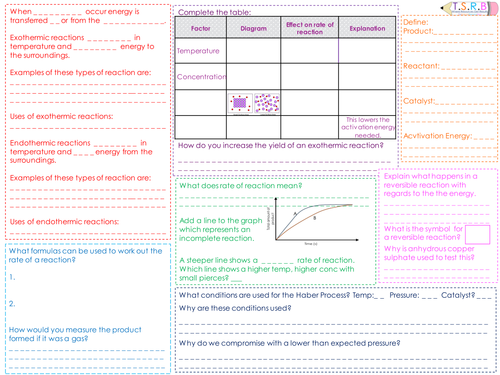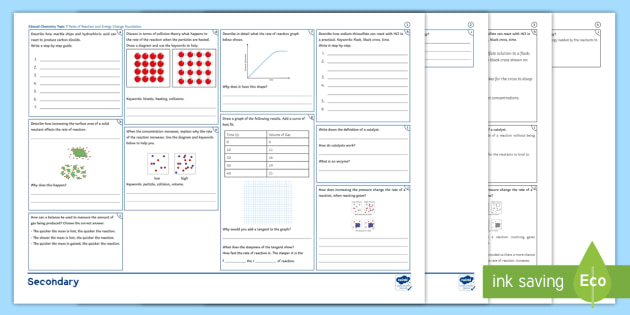Rates Of Reaction Revision Mat

1 2 the rate of reaction changes depending on how far through the reaction is.
Rates of reaction revision mat. Contains all of the key information on the topic revision mat. Free 8 sheenapet rates of reaction learning mat. Designed specifically for the new aqa specification teaching from 2016 but may also be suitable for other. The rate of a reaction is a measure of how quickly a reactant is used up or a product is formed.
Chemistry unit 2 revision learning mats. For students to fill in covering the key areas question sheet. Can be used as revision mat or flashcards. The rate of a reaction is a measure of how quickly a reactant is used up or a product is formed.
2 4 rates of reaction learning mat. Chemistry rates of reaction revision. Lots of questions for students to answer about the topic designed specifically for the new aqa specification teaching from 2016 but may also be suitable for other exam boards. The rate and extent of chemical change.
1 measuring rates of reaction. For students to fill in covering the key areas question sheet. The method chosen usually depends on. The rate and extent of chemical change from the combined science aqa chemistry specification.
These printable a3 mats cover unit 6 rate and extent and reversible reactions and dynamic equilibrium mat 1 calculating rates of reaction drawing and interpreting rate graphs tangents as a measurement of reaction rate mat 2 methods of measuring rates of reaction involving gas production and expected results mat 3 investigating the effect of. Covers aqa 9 1 chemistry science trilogy specification for topic 6. There are different ways to determine the rate of a reaction. The method chosen usually depends on.
This resource is designed for uk teachers. Lots of questions for students to answer about the topic these resources can also be purchased with a revision sheet for this topic please see my shop for details look for the revision packs. Students can tick the box by each question when they are confident with it. It summarises the key topics for the unit including collision theory and activation energy calculating rate of reaction reversible reactions dynamic equilibrium factors affecting the rate of a chemical reaction such as temperature.
1 1 the rate of reaction can be measured by considering the amount of product formed or reactant used in a given period of time.



















